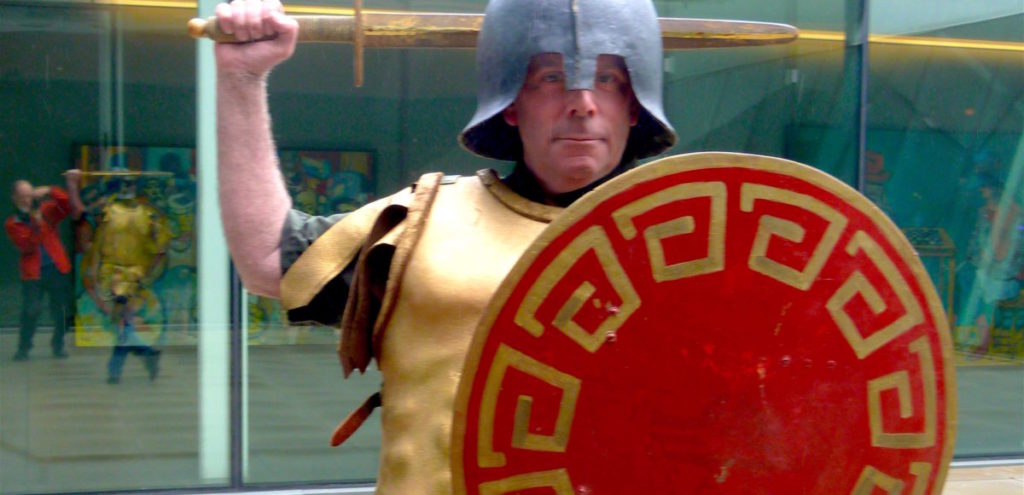Will what happened in Sparta stay in Sparta?

The Last Spartan, Produced by Jamine Ackert, Written and performed by Pierre Brault
Imagine a state in which one of the most important trials takes place around the role of art in society. Where lawyers and prosecutors debate the value of art to the social order. Got a picture? Probably not. So, think Sparta, renowned as the warrior nation. In point of fact, a city state so bent on birthing the perfect warrior that newborns deemed unlikely to fulfill that future job description are hustled off to the windy side of the mountain and left to die. Ok, so, in Sparta, the right to bear arms with distinction is what gives the collective body politic its tick.
Dorian of Laconia is charged with corrupting that body politic through his artistic pursuits, specifically playwriting. After all, playwrights ridicule, they joke it up, punch holes in puffed up public figures. The modus operandi of the military is to conflate; artists deflate. What makes this conflict doubly interesting is that this disagreement over the role of the arts in society is portrayed as a principle point of contention between Athens and Sparta.
Playwright, instigator, and actor Pierre Brault brings all of his considerable talents to this heady mix of well-researched storytelling. The Last Spartan is commandingly performed, eminently entertaining and a Fringe must see. To the delight of the audience, Brault’s trademark quickly shifting dialogue between multiple characters, all played by himself, where speakers seem to interrupt each other, is on display. The show is also accompanied by a wonderful soundscape that serves the text and underscores important moments in the action.
The script is perhaps a little too jam packed with fascinating detail at present. History buffs will get their buzz while those who just want to grab onto the facts that drive the narrative need to stay on the alert. (Though the requirement to stay alert is a sign of theatre at its best.) And while the connections to contemporary society are there, by inference, that doesn’t mean the play wouldn’t benefit by stating them more emphatically.
Questions percolate under the surface of this turbulent tale, prompting a reflection on our times after one leaves the theatre. Could the trial of Dorian be replicated in our day? Or, to put it bluntly, what would be the required political order before vitriolic comedic assaults on elected officials were declared a threat to national security. In the ever-repeating cycle of history, what happened in Sparta did not stay there.
Performed at la Nouvelle Scene, studio A